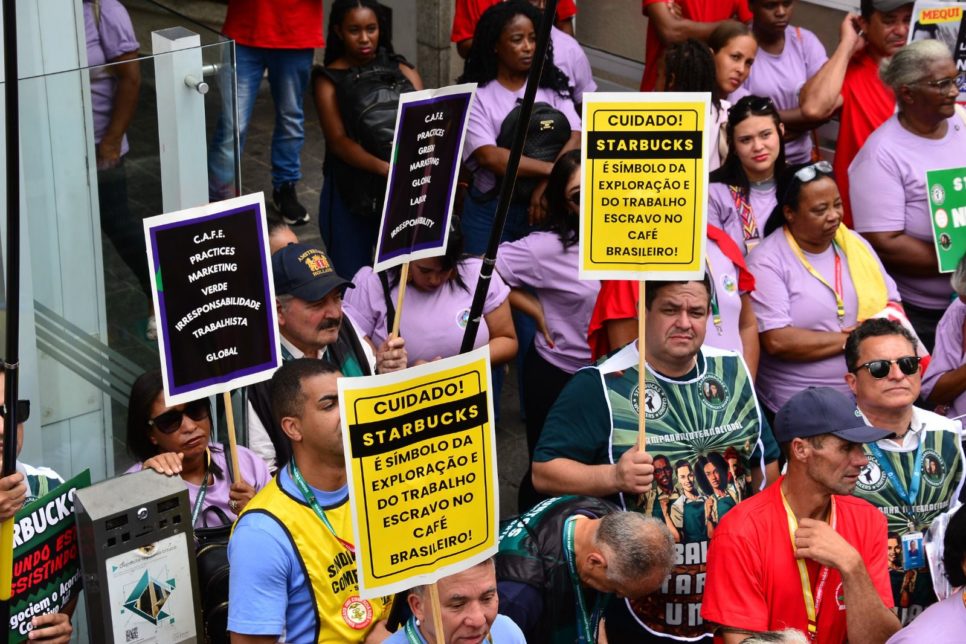Slave labor blacklist defended in the UN
Publication of the document has been suspended by the Superior Labor Court at the request of the federal government

The legal battle to block the publication of the slave labor blacklist, which identifies companies found using contemporary forms of slavery, was the target of harsh criticism today, March 20, at the 34th session of the UN Human Rights Council in Geneva, Switzerland.
The complaint, made by Conectas Human Rights, comes just days after a new dispute in the Superior Labor Court involving the document. On March 7, the president of the court, Judge Ives Gandra Filho, suspended the publication of the list after the federal government filed two appeals against previous labor court rulings.
According to the decision by the Superior Labor Court, the presidency has 120 days to “reformulate and streamline” the decree that created the blacklist – which human rights organizations interpret as a maneuver to undermine the tool. Judge Gandra Filho’s ruling was annulled on March 14 by another judge on the same court, Alberto Luiz Bresciani, after the Office of the Public Prosecutor for Labor Issues filed a request for an injunction. The federal government has still not appealed.
Read more
Click here to read the ruling of Judge Ives Gandra Filho.
Click here to read the ruling of Judge Alberto Luiz Bresciani.
As far as Conectas is concerned, such an important tool in combating slave labor must not be vulnerable to legal disputes. According to the organization, the constitutionality of the list has been challenged in the past, but “this is the first time that the Federal Executive has sided with the interests of the corporate sectors that benefit from the suspension” of the document.
“Any decision by the Judiciary to suspend the list on the grounds of its violation of individual liberties favors private corporations involved in slave labor in detriment of the most vulnerable” in society, the organization told a full session of the Human Rights Council – a body on which Brazil serves as a Member State.
Click here to read the oral statement made by Conectas.
Conectas also urged the Brazilian government “to refrain from further weakening this fundamental mechanism during the work of the new group created to revise the regulation” and described as “unfounded” the argument put forward by the government, and accepted by Judge Gandra Filho, that the publication of the blacklist infringes on the right of defense and on due legal process.
“In May 2016, the list was updated. Due process was strengthened and a 1-year grace period was created,” it said.
“Long-standing commitment”
The Brazilian diplomatic mission in Geneva requested the right of reply after the complaint and stated that the country has a “long-standing commitment” to the eradication of slavery. It also said that the group appointed to revise the ministerial decree that created the blacklist should come up with a new version of the regulation by July.
According to the government, the lack of a “solid legal basis” could lead to fresh legal disputes in the future – which justifies the changes being made to the regulation.
The creation of the blacklist, 13 years ago, has already been acknowledged by the United Nations as an international reference in the combat of contemporary slavery. It is used by public and private banks and national and international companies to ensure the commitment of its clients, suppliers and commercial partners to human rights in the production chain.






